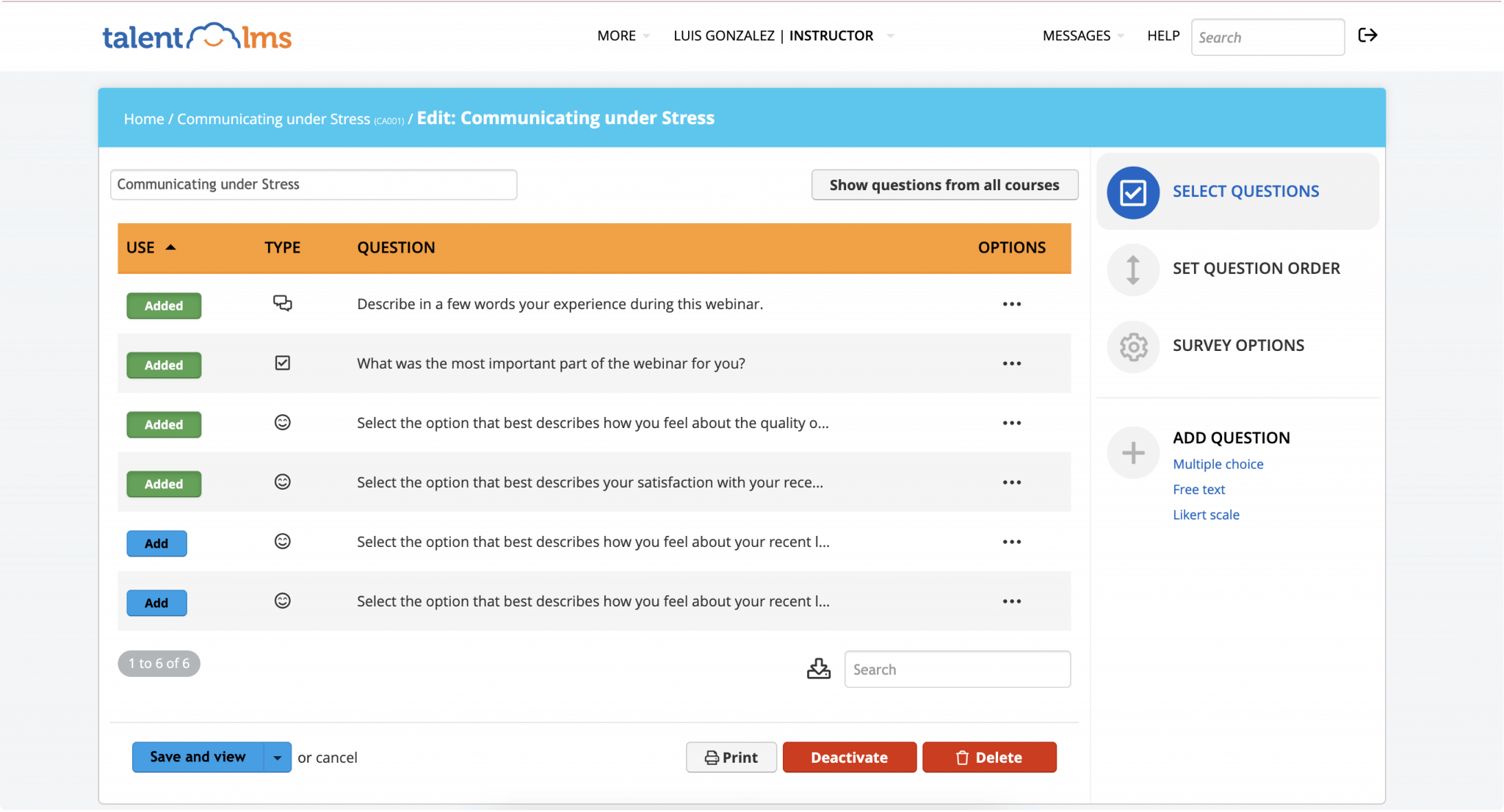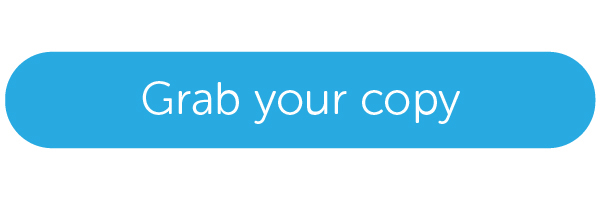Training is essential if you want to boost employee performance and productivity in your business. It’s also useful if you want to get customers and external partners accustomed to your product, processes, or services. But how can you be sure that training works and brings the results you want? Which actions should you follow next if you want to make your learning courses more effective for your needs? The best way to do so is to invest in proper training evaluation.
There are multiple ways to evaluate whether your training is successful. For example, exploring course completion rates, learner drop-off rates, learner engagement, or training cost per employee. One of the most powerful methods is to go directly to learners and ask for their feedback. And you can do that with an email.
To help you get started, we’ve prepared a training evaluation email template you can use to discover more about the effectiveness of your training. We’ll also give you some useful tips to consider as you craft your email.
What we’ll cover:
- What to include in your email—why, who, how, and when
- How to use the post-feedback email template
- Email templates for collecting feedback after training
- Examples of how to adjust the templates to match your business needs
What to include in your post-training evaluation email
You shouldn’t spend too much time preparing your email to collect training feedback. All that’s necessary is to set up a template that you can tweak every time based on your specific needs.
Here’s what to keep in mind when you’re preparing your post-training evaluation email:
“Why”
Asking for training feedback shouldn’t be just another item on your to-do list. A post-training evaluation survey takes time both for the HR team that will set it up and for learners who’ll complete it. So, it needs to have a clear purpose. And specific next steps.
For example, you might want to collect feedback to improve your next training sessions. Or, you might want to find out whether you should build follow-up training sessions for knowledge reinforcement. The goal of your post-training evaluation survey will determine what exactly you’ll write in your email.
“Who”
These emails can be sent either by the HR or L&D team or the person who conducted the training. It depends on the occasion and here’s why.
If someone from the sales team hosted an ILT session for your external partners or customers, they can send the employee training evaluation email to request feedback. They’re a familiar face, so your partners or customers will be more likely to respond. On the other hand, when it comes to internal training, it’s better to have HR request feedback. Employees might hesitate to provide feedback directly on a team member.
“How”
What is the information you need to collect in order for the feedback to be useful? It’s best to avoid questions like “What did you think of the course?”. Data from this can’t be measured, so you’ll end up with no useful information. It’s too broad and generic. If you want to get valuable feedback, you need to ask more targeted questions.
Focus on specific points to evaluate training. Some good examples of post-training evaluation questions are the following:
- How would you rate your trainer’s expertise? (instructor)
- Was the quality of the content consistent throughout the course? (content)
- Did you feel equally engaged in each course section? (structure)
- Would you have preferred more interactivity while taking the course? (delivery)
- Did you have enough time to complete the test(s)? (duration)
Of course, you can add or remove questions, depending on what data you want to collect. Just make sure you group the points of interest and build specific questions for your learners to answer.
To gather truly valuable training feedback, it’s best to combine both qualitative and quantitative questions. Qualitative data is collected through open-ended questions in the form of a text or description. Quantitative data can be found in close-ended or numerical questions.

Find out whether your training meets its goals
Set up a post-training survey in just a few clicks with TalentLMS.
The training platform that users consistently rank #1.
The question types you will include on the post-training evaluation survey depend on the number of trainees you want to get feedback from. Even if the combination of the two types is optimal, sometimes it might not be practical.
For instance, if the team that has completed the training is small, you can ask learners to directly reply to the email you sent. You can include a few questions there and kindly ask them to share their opinion via email. It’s super fast to set up, but it takes a bit of time to carefully read and organize the data you’ll gather.
Imagine having open-ended questions with qualitative data from 100 people. It would take forever to organize the findings and discover patterns. This is not applicable to bigger learner groups. However, you can add a link to the email that directs learners to a completion form. A Google form or a post-training survey in your training portal with quantitative questions (and a couple of qualitative ones won’t hurt) will help you gather data that is already organized and can be examined easily.
“When”
The time when you request post-training feedback depends on what exactly you want to find out. In case you want data on how engaging the course was, it’s best to send the evaluation email straight away so that training is fresh in learners’ minds. If you are looking to discover whether they still remember the course material or if they have applied the information to their jobs, it’s better to wait for a few weeks before you ask for feedback.
Using this post-training evaluation email template the right way
Your evaluation email template has to be carefully prepared. It’s essential that you include the basics (which training you’re asking feedback for, how they can provide it, and by when.) Whether you’re sending this post-training evaluation form to employees or external partners, you should also explain why you’re asking for this feedback. As well as for what you will be using it. People tend to care more when they know why they’re spending time on something. Also, they are more engaged and dedicated to it when they are aware that their opinion will help improve things in the future. Last but not least, if it makes sense to keep answers anonymous, ensure that it is clearly stated in your email.
Use the templates below as your guide, but feel free to delete any parts that are not relevant or necessary. Make sure your template is tailored to your needs and your company’s voice.
For example, if you’re regularly asking for feedback from your employees, you can keep your email shorter as they’re already familiar with the process. But if you’re asking for post-training feedback for the first time or if you’re reaching out to customers, you might need to add more detail.
Looking for more training email templates? Download our free customizable samples:
- Invitation to compliance training
- Reminder to complete a course
- Invitation to a mandatory training session
- Invitation to a live training session
- Announcement for upcoming training
- Invitation to log into your LMS

Download your email template for post-training feedback
In this section, you can find email samples to use for collecting post-training feedback. Feel free to download and personalize these samples to cater to your needs. There are options for feedback for employee training and customer or partner training.
Template 1: Internal training (employees)
Email subject line: [Name of training course]: Your opinion matters!
Dear [employee name],
We’d really like to get your feedback on the [name of the course] you recently completed.
You can complete our quick survey by following this link [link to the survey on the company’s LMS].
Please share your feedback by [date]. By doing so, you’ll help us create meaningful training courses. This is what makes our team stronger!
If you have any questions, please let me know.
Thank you in advance for your time.
I look forward to getting your feedback.
[name] [email signature]Template 2: External training (partners and customers)
Email subject line: [Name of training course/webinar]: Your opinion matters!
Dear [partner name],
Thank you for attending [name of course/webinar]! We’d love to hear what you thought of it.
We respect your privacy, so all answers will be anonymous.
You can fill in this form [link] by [date], it will only take you a few minutes.
Your feedback will help us deliver even more engaging training sessions in the future that add more value to you, as well.
If you have any questions, feel free to reply to this email.
Thank you in advance for your time.
I look forward to receiving your feedback.
[name] [email signature]Download our email template to ask for post-training feedback.
Fill in the details and reach out to your learners in just a few clicks.

How to customize your post-training feedback email template
Now that you have the basic template, it’s time to personalize it. Make sure you customize it to fit your company culture, the course you have offered, and your audience. To give you some inspiration, we’ve included some examples below.
Email template example 1: Post-training feedback from employees
Email subject line: Business Ethics: Your opinion matters!
Dear Ajay,
Congrats on completing the “Business Ethics” course!
We’d love to hear what you thought of it. Could you please fill out this quick survey by next Monday, March 15? It shouldn’t take you more than 2-3 minutes.
By doing so, you’ll help us create meaningful training courses. This is what makes our team stronger!
You can complete our quick survey by following this link.
If you have any questions, please let me know.
Thank you in advance for your time.
I look forward to getting your feedback.
Emma Johnson
SVP HR
Email template example 2: Post-training feedback from customers
Email subject line: Recruiting best practices webinar: Your opinion matters!
Dear Lucas,
It was great seeing you in our webinar on “Recruiting best practices” last Friday!
We’d love to hear what you thought of it.
Could you please fill in this form by Monday, July 20? It will only take you 3-4 minutes. We respect your privacy, so all answers will be anonymous.
Your feedback will help us deliver even more engaging training sessions in the future that add more value to you, as well.
If you have any questions, feel free to reply to this email.
Thank you in advance for your time.
I look forward to receiving your feedback.
Daniel Sanchez,
Product Manager
Feedback always helps
Feedback can be a great assistant in building successful training programs. As long as you analyze the answers you get and make adjustments based on them. This is where you should be spending most of your time.
Having a template in place will help you collect feedback faster so you have more time to focus on actually using it. And improving your training.



